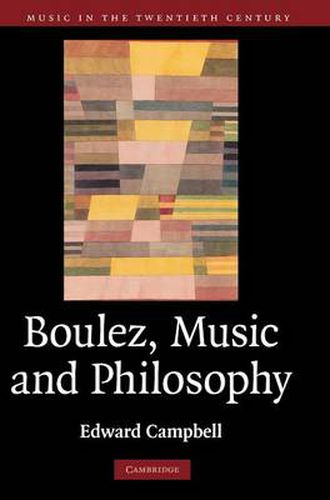Readings Newsletter
Become a Readings Member to make your shopping experience even easier.
Sign in or sign up for free!
You’re not far away from qualifying for FREE standard shipping within Australia
You’ve qualified for FREE standard shipping within Australia
The cart is loading…






While acknowledging that Pierre Boulez is not a philosopher, and that he is wary of the potential misuse of philosophy with regard to music, this study investigates a series of philosophically charged terms and concepts which he uses in discussion of his music. Campbell examines significant encounters which link Boulez to the work of a number of important philosophers and thinkers, including Adorno, Levi-Strauss, Eco and Deleuze. Relating Boulez’s music and ideas to broader currents of thought, the book illuminates a number of affinities linking music and philosophy, and also literature and visual art. These connections facilitate enhanced understanding of post-war modernist music and Boulez’s distinctive approach to composition. Drawing on a wide range of previously unpublished documentary sources and providing musical analysis of a number of key scores, the book traces the changing musical, philosophical and intellectual currents which inform Boulez’s work.
$9.00 standard shipping within Australia
FREE standard shipping within Australia for orders over $100.00
Express & International shipping calculated at checkout
While acknowledging that Pierre Boulez is not a philosopher, and that he is wary of the potential misuse of philosophy with regard to music, this study investigates a series of philosophically charged terms and concepts which he uses in discussion of his music. Campbell examines significant encounters which link Boulez to the work of a number of important philosophers and thinkers, including Adorno, Levi-Strauss, Eco and Deleuze. Relating Boulez’s music and ideas to broader currents of thought, the book illuminates a number of affinities linking music and philosophy, and also literature and visual art. These connections facilitate enhanced understanding of post-war modernist music and Boulez’s distinctive approach to composition. Drawing on a wide range of previously unpublished documentary sources and providing musical analysis of a number of key scores, the book traces the changing musical, philosophical and intellectual currents which inform Boulez’s work.